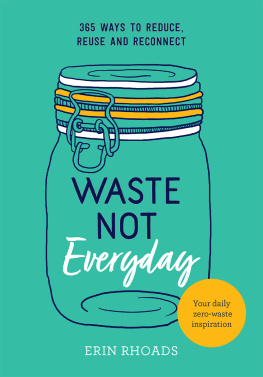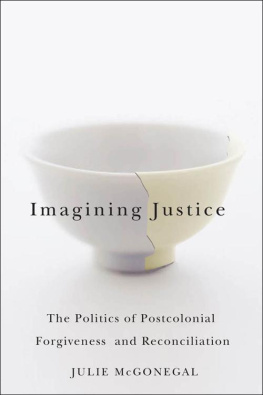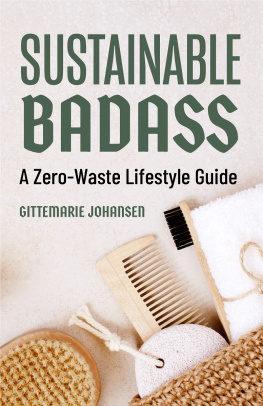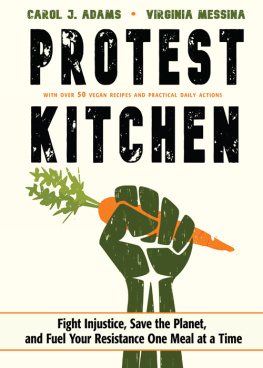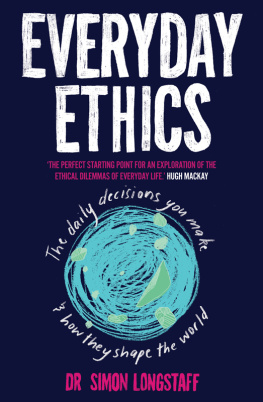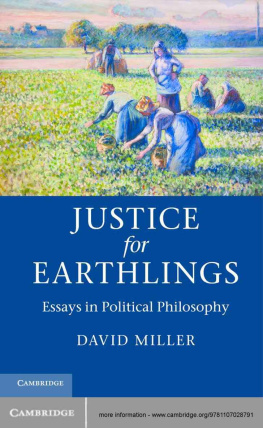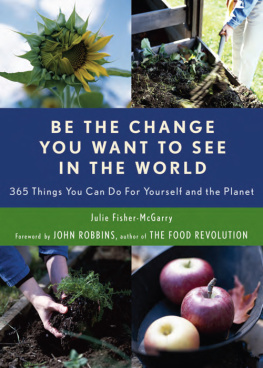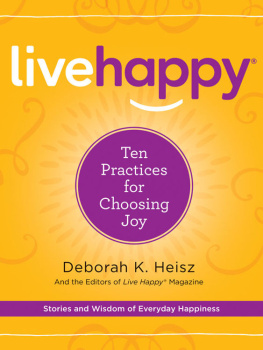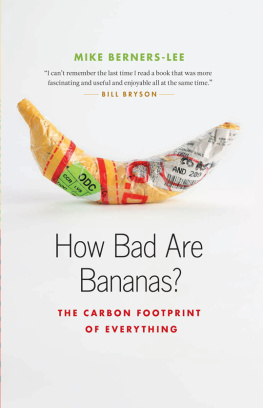1

Coffee
Fair Trade and the Daily Latte
M ark glanced at his watch. Although he was running a few minutes late, he figured he still had time for his morning ritual: a cup of coffee at the corner coffee chain. As he parked his car and headed inside, he wondered what todays trivia question would be. Even with just a ten-cent discount on the line, answering the stores daily trivia question had become a minor obsession for Mark. So he smiled as he wondered what sort of arcane lore he would have to rack his brain for today.
He barely glanced at the college student behind the counter as he ordered his regularmedium, skim latte, extra hotand read the question of the day posted on a blackboard behind her. What is the name of our new line of coffee that is sustainably grown and whose production guarantees the growers are paid fair wages?
Mark rolled his eyes as he remembered the huge display at the front of the store.
The Fair Trade Jungle Blend, he said to the barista.
She gave him a quizzical look.
The answer to the trivia question, he prompted.
Oh, yeah. Youre right. Sorry. No one else has bothered answering that yet today. You get the discount.
As he took out his wallet to pay, Mark asked, So if this is a new line of coffee, does that mean that the rest of the coffee you serve here isnt sustainably produced or doesnt pay the workers fair wages?
The barista gave him a confused look and shrugged. Im not sure what you mean. You can take the flier about the Jungle Blend; Im sure it will explain all about it. I just sell the stuff.... That will be $3.45.
Aware of the growing line behind him, Mark quickly paid for his coffee. He spared a brief glance at the Jungle Blend display as he left, noticing the poster of the smiling Latin American farmers standing under a canopy of trees. Happy workers growing coffee with traditional methods that cared for the land. It all seems rather idyllic, he thought as he walked out to his car, the way Ive always thought coffee has been grown. As he took a sip of his latte, it troubled him a little; he wondered why the store needed to advertise that one of their lines of coffee brought a fair wage to its growers. He knew enough about business to know that highlighting something like that meant that it was special and different. But since when did paying people fairly for their work become the exception not the norm?
It was a disturbing question but one Mark didnt have time for. He was already running late for work and the day promised to be rather busy. So pushing thoughts of fair wages aside, he drove out of the parking lot and took another sip of his latte.
My first introduction to the concept of ethical consumption came through coffee. I was in high school and college during that period in the 1990s when the coffee craze swept the nation. Any and everything related to coffee automatically attained the status of cool. Gatherings with friends involved hitting the latest new coffee shopeven if a person didnt drink or even like coffee. Like Mark in the story above, I had my latte addiction (and was a tad obsessed with always answering the daily trivia question correctly).
The coolness factor of coffee seeped into the church as well. Serving lattes and flavored cappuccinos (as opposed to the typical churchy offering of slightly burnt, overly percolated, tinted water) became synonymous with hip and relevant new worship trends. (The coffee and candles clich about the emerging church had to start somewhere, right?) Coffee conveyed status, and for a time, I bought into this trend too. Coffee became more than just the source of beloved caffeine; it represented something bigger than itself, a symbol of the cultural story I wanted to inhabit. Yet for all my flirting with the idea of coffee, it was years before I became aware of the larger story of coffeea story in which I was an unknowing participant, the story of coffees origins and the people who produced it for my consumption. Once I encountered that story, I began to see how my coffee-buying habits were actually ethical actions. And that, to use the clich, is what changed everything.
The Coffee Story
In the To these farmers coffee is much more than a cultural trend or a status symbol; it is their livelihood. Unfortunately, many of these farmers barely make a livingdespite devoting their lives to growing coffee. As many of us make a social habit of dropping four dollars for a cup of coffee, the typical farmer sees little or none of that money. To complicate matters, as the popularity of coffee exploded, the price per pound of coffee paid to the growers plummeted.
Prior to 1989, Western nations abided by the This agreement was a product of the Cold War and was based on the assumption that, if coffee growers received a decent wage, the cultural instability that the communists might take advantage of would never develop. At the same time, as the trendiness of coffee increased (in what the media often refer to as the Starbucksification of America), demand for one of the worlds already largest commodities grew, and international banking organizations encouraged developing countries to produce more coffee to meet that demand which, predictably, resulted in a surplus of supply. With the end of the Cold War, the United States abandoned the International Coffee Agreement, and the twin effects of supply surplus and loss of government protection sent prices plummeting. So while many farmers toiled full time, they didnt have enough money to feed, house or educate their families.
For instance, Tatu Museyni, a widow and small coffee farmer in Tanzania, recently saw a return of fifteen dollars for her entire yearly crop. She knows that education would provide a better life for her children, but with annual school fees running an average of ten dollars per child, this poor return makes it impossible for her to afford to send her children to school. To merely survive and pay basic medical bills, she must sell even the food she grew for her children to eat, and she has to spend more time away from her six kids by working odd jobs. She laments, Education is very important. It will help my children to have a better life. That is why I struggle She and her children are part of the story about the coffee we drink, and they are suffering because of it.
Farmers like Tatu Museyni, desperate to make any money at all, had to sell the fruits of their labor at prices far below the cost of production. They had no choice except to keep producing their crop and trying to survive. In fact, many of them were locked into growing coffee by government mandates or lived on land where the soil and terrain limited their crop options. Options didnt really exist for them. But in a broken economic system, their well-being mattered far less than profit for others.
The five companies (Nestl, Kraft, Procter & Gamble, Sara Lee and the German Tchibo) that control 50 percent They are the ones who choose how much coffee to buy and what they will pay for that coffee. Smaller companies look to the standards the big companies set when they go to buy coffee. After years of falling prices, the market hit an all-time low in 2001, devastating the lives of coffee growers around the world. While the farmers struggled to survive, consumers in 2001 didnt see a drop in the price of their lattes. Instead the coffee production companies saw a huge increase in their profits.
While making a profit is the basic goal of most companies, the question arises whether making a profit justifies the ongoing harm done to coffee growers around the world, forcing hard-working farmers deeper and deeper into poverty. This is the system that we, as consumers, support each time we spend our money on coffee, and this is where economics and ethics start to collide. Numbers and statistics about supply and demand can tell part of the story, but to fully understand the immensity of the problem, we need to see the effects on the lives of real people.


